Nation
Senate Passes Proceeds Of Crime Bill For Second Reading

The Senate, yesterday, passed the Proceeds of Crime Bill for second reading.
The Bill titled, “A Bill for an Act to provide for a comprehensive legal and institutional framework for the recovery and management of proceeds of crime or benefits derived from unlawful activities, harmonize and consolidate the legal provisions on the recovery of proceeds of crime and related matters, 2021” was sponsored by Senate Leader, Yahaya Abdullahi (Kebbi North).
Abudullahi in his lead debate noted that the country has been striving to put in place an appropriate Proceeds of Crime legislation since 2007.
He said that efforts to develop a comprehensive bill have been impeded by agency rivalry since 2011.
Abdullahi said, “Effort to sign the Proceeds of Crime Bill into law in 2019 was delayed as a result of complaints by agencies that claimed that the Bill is intended to take away their powers.
“There are many compelling reasons to put in place a comprehensive legislation on recovered assets.
“During the evaluation of Nigeria in 2007 by the International Financial Action Task Force (FATF), they observed in their report that the legal framework for the recovery and management of stolen assets in Nigeria is inadequate and do not comply with international standards.
“At the same time, due to lack of centrally managed database on recovered assets, it is difficult to track and maintain the actual number of the seized assets, their location and their value.
“There have been reported and verifiable instances over the years that showed that some recovered assets were being misused, stolen or lost.
“Further investigations have shown that some of the agencies opened multiple accounts for the payment of forfeited assets without keeping proper records.
“It was against this background that Mr. President constituted the Presidential Audit Committee on Recovery of Assets (PACRA) in 2017.
“Not surprisingly, the committee’s findings re-iterated the need for comprehensive and more innovative approach in the management of recovered assets in a transparent and accountable manner so that these assets would become a source of revenue for the country as is the case in many developing and developed countries of the world.
“Following the submission of the report of PACRA in 2018, the President directed that the following measures amongst other be put in place pending the passing of the Proceeds of Crime Bill into law.”
The measures according to him, include, “The establishment of an Asset Recovery and Management Unit in the Federal Ministry of Justice (ARMU/ FMOJ);
“The opening of a central asset recovery (final forfeiture) account and a central (interim forfeiture) account in the Central Bank of Nigeria. This is to enable the FGN track all recovered assets and the benefits derived from them;
“Use of recovered assets/funds as a source of revenue in the Appropriation Act of 2018 and in subsequent Appropriation Acts.”
He added that the reason the country always have to sign these agreements is to convince other countries that the government is focused on the development of the country with the recovered assets and that it will be accounted for in a transparent manner.
He said: “Proceed of Crime legislation is seen as one of the vital conditions to secure Nigeria’s full membership of the Financial Action Task Force (FATF).
“Nigeria’s application has remained elusive as the agencies argue to retain their powers at the expense of national interest.
“The Bill has, however, taken into account the issues raised by the LEAs in relation to their continuing engagement in civil recovery without compromising the international applicable standards in United Nations Conventions.
“It is a generally accepted that crimes, particularly those in the category of economic and financial crimes are usually committed for profit purposes.
“Asset deprivation attacks criminality through this profit motive. In the same way that starving a thriving small business of capital hampers its growth, removing assets from criminal enterprises, including terrorist organizations, kidnapping organizations and bandits who must necessarily undertake their operations with funding from individuals within or outside the country will certainly hinder and deter their illicit operations.
“A strong asset recovery measure can also disrupt the activities of these criminal organizations and reduce the level of insecurity in the country.”
The Kebbi North lawmaker added that removing unlawful assets also, “Engenders confidence in a fair and effective criminal justice system and shows that nobody is above the law.
“Removes the influence of negative role models from communities; deters people from crime by reducing the anticipated returns.
“Provides a powerful disincentive to commit crime in the first instance; prevents reinvestment in criminal activity; and disrupts organised criminal activity.”
Besides, he urged his colleagues to note that “virtually all of the processes and procedures for recovery of proceeds and instrumentalities of crime are, in accordance with international practices, properly brought under judicial oversight and will no longer be left to the whims and caprices of any agency.
“Also noteworthy are the specific statutory timelines established under the proposed enactment to ensure that the constitutional rights of the citizens are guaranteed in the implementation of the recovery processes and procedures.
“Importantly, the exigency of Nigeria having in place this all important piece of legislation cannot be over-emphasised as Nigeria to date is still deficient in meeting this outstanding obligation under Recommendation 4 on Confiscation and Provisional Measures of the FATF Recommendations adopted by the FATF Plenary in February, 2012 and updated in June 2019.
“This FATF Recommendation requires countries to establish mechanisms that will enable their competent authorities to effectively manage and where necessary, dispose of property that is frozen, or seized or has been confiscated and requiring that the mechanisms to be established should be applicable both in the context of domestic proceedings and requests to and by foreign countries.”
Senators in their contributions supported the Bill and approved that it be read a second time when it was put to voice vote by Senate President, Dr Ahmad Lawan, at plenary.
Lawan thereafter referred the Bill to the Senate Committee on Judiciary, Human Rights and Legal Matters for further legislative work and to report back in two weeks.
Nation
HYPREP Inducts 100 Ogoni Youths For Creative Arts Training
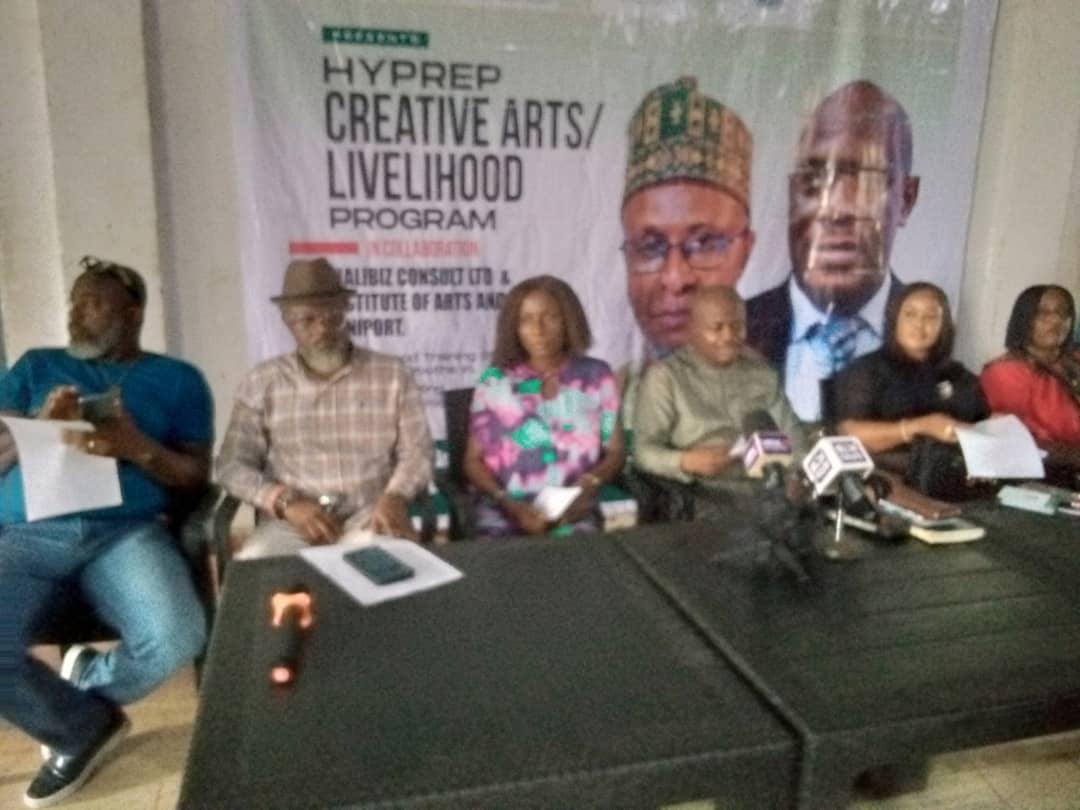
The Hydrocarbon Pollution Remediation Project(HYPREP) has inducted and given orientation to 100 Ogoni youths for training on Creative Arts. The beneficiaries were drawn from Khana, Gokana, Tai and Eleme Local Government Areas of Rivers State.
The induction and orientation ceremony, which took place at the CRAB of the Department of Theatre Arts of the University of Port Harcourt on Wednesday, was a prelude to the training proper, billed to commence next Tuesday.
As usual, HYPREP issued undertaking forms to the trainees, for them to complete and submit as a guarantee that they would subject themselves to the requirements of the programme as well as be of good behaviour throughout the four-month duration of the training.
HYPREP also announced that it would pay N150,000 to each of the beneficiaries monthly, as transport and feeding allowance, stressing, however, that only those who fully participate in the training would be entitled for the allowance.
Speaking at the event, the Project Coordinator of HYPREP, Prof Nenibarini Zabbey, welcomed the trainees to the programme, saying, HYPREP’s projects are evolving and that one thing that is happening today is that the Project has gotten leadership right, by making promises and keeping those promises.
According to him, the Project had equally promised to move away from rudimentary skills acquisition to high impacts acquisition levels, which it has kept today by sponsoring the training on Creative Arts.
He noted that in planning its livelihood programmes for Ogoni youths, HYPREP has taken time out to look for skills that would add value to the lives of the beneficiaries.
Zabbey, who was represented at the event by the Director of Technical Services, Prof Damian-Paul Aguiyi said by packaging the Creative Arts training, it was expected that the Ogoni people would have their own version of Nollywood known as Ogoniwood just as Nigerians are familiar with Hollywood, Bollywood, Kannywood and Nollywood.
To achieve this goal, the Project Coordinator explained that it was the reason for choosing a reputable establishment like Halibiz Consult Limited, to partner with the Department of Theatre Arts of the University of Port Harcourt, which he described as one of the most prestigious in the Niger Delta, for the training of the beneficiaries.
He also indicated that in doing this, HYPREP was desirous of going for talents that would help the Ogoni people grow in the film industry, and urged the beneficiaries to take the training seriously.
Zabbey equally enjoined the trainees to put in their best so that in the next three to five years, they would carve a niche for themselves and become forces to reckon with in the film industry.
On her part, HYPREP’s Head of Sustainable Livelihood, Mrs Josephine Nzidee said HYPREP does what it says it will, stressing that the process of training Ogoni youths on specialised skills started three years ago.
According to her, the selection process for the training was rigorous and transparent, and was carried out by renowned actors actresses.
She disclosed that the training consists of three major aspects, which include acting, script writing and make-up, while Nollywood actors like Charles Nnoje, Ngezu J. Ngezu and award-winning make-up artist, Jude Odo would be on hand to drill and groom the beneficiaries.
Mrs Nzidee noted that the programme is a specialised training that does not have anything like starter packs but that it is purely a professional certification programme that would launch the beneficiaries into the Nollywood industry in Nigeria.
According to her, the Creative Arts training is one of the four specialised trainings organised by HYPREP to ensure that the Ogoni people are well positioned in vital industries like Aviation, Maritime, Creative Arts and Mechatronics.
She said the last of such trainings on Mechatronics would take place in the coming months, and urged the beneficiaries to take the training seriously so as to put the Ogoni people on the Nollywood map.
She further indicated that while Charles Nnoje and Ngezu J. Ngezu would take the beneficiaries on the practical aspects, Jude Odo would take them on the make-up aspects.
Also speaking, the External Relations Manager of Halibiz Consult Limited, Alabo Experience Douglas said his company gives much premium to standard and quality, and assured that the firm would give the trainees value for the money spent on the programme.
While charging the beneficiaries to be dedicated and punctual, he stressed the need for them to approach the programme with the mindset of being empty so that at the end of the day, they would benefit maximally.
On his part, the Head of the Theatre Arts Department of the University of Port Harcourt, Dr Ovunda Ihunwo said the CRAB is an acronym for Creative Review of Arts and Books, stressing that it was named by renowned playwright, Prof Ola Rotimi.
According to him, the CRAB had nurtured, groomed and produced Nollywood actors and actresses like Bobmanuel Udokwu, Ejike Asiegbu,Francis Duru, Hilda Dokubo, Monalisa Chinda, Julius Agwu, and a host of others, assuring the beneficiaries that they were on fertile environment to hone their talents.
He noted that symbolically, the crab is a nutritious seafood common in the Niger Delta, and reiterated the need for the beneficiaries to come empty for the training, as it were.
Ihunwo disclosed that the theory classes of the programme would run for three weeks while the fourth week would be for the master classes, and urged the trainees to avail themselves of the opportunity to make a difference by telling the Ogoni story, which he described as inexhaustible by themselves, in order to put Ogoni on the map.
Nation
Nasarawa Varsity Student Commits Suicide

A 23-year-old student of Nasarawa State University identified as Jatau Rilokwah, has been reportedly found dead in the university’s senior staff quarters.
A counter-insurgency expert, focused on the Lake Chad region, Zagazola Makama, disclosed this on his X handle on Tuesday.
According to him, the discovery was made on April 27, 2025, by a security officer at the university, Emmanuel Gyawo.
He stated that Gwayo was directed by Prof. Shedrack Jatau to check on his son upon arriving at the residence, and he found Rilokwah hanging from the ceiling.
“Professor Jatau, who was reportedly out of the State at the time, was informed of the incident. A team of police detectives, led by the Divisional Crime Officer of Angwan Lambu, was dispatched to the scene.
“The body showed no signs of violence, and no suicide note was found. Rilokwah was rushed to the Federal Medical Centre in Keffi, where he was confirmed dead by a medical doctor,” he further stated.
He added that the student’s corpse had been deposited in the hospital morgue.
He also quoted police sources as saying that investigations were ongoing to determine the circumstances surrounding the incident.
Nation
Ogun, Nike Art Gallery Set To Transform Olumo Rock
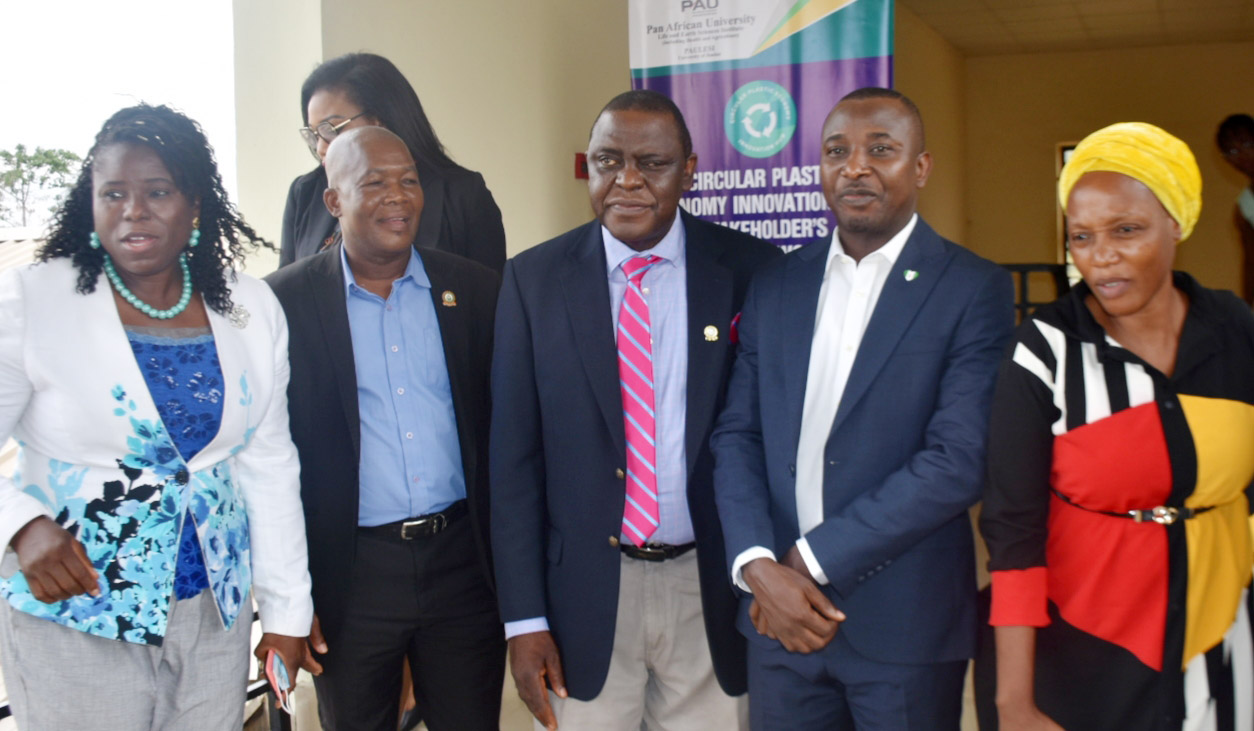
The Ogun State Government has partnered with Nike Art Gallery to establish a new exhibition space at the Olumo Rock Tourist Centre in Abeokuta, a move Governor Dapo Abiodun says is aimed at boosting annual tourist visits from 20,000 to over 100,000.
Abiodun disclosed the plan on Wednesday while receiving the founder of the Nike Art Gallery, Chief (Mrs) Nike Davies-Okundaye, at his office in Oke-Mosan, Abeokuta.
“I went to Olumo Rock about a month ago and I decided that we needed to do something about restoring Olumo Rock to its old glory. From statistics, Olumo Rock hosts about 20,000 people a year in its current state, and I felt that we could increase that to at least ten times,” the governor said.
As part of the plan, an events hall within the tourist centre will be repurposed as a permanent gallery operated by Nike Art Gallery.
“I told them to shut it down. Practically, we want to bring it down and turn it into a gallery for you to use as an exhibition gallery,” he told Davies-Okundaye.
He added that the gallery will be ready before the National Sports Festival in May, when the State will host about 15,000 visitors.
“I want them to be able to see our tourist sites,” he said, listing attractions such as the Olusegun Obasanjo Presidential Library, the Ransome-Kuti family home, and the Adire market among key heritage spots to be showcased.
Highlighting Ogun’s improved infrastructure, the governor said, “Now that we’ve succeeded in having the intra and inter-state roads in place, you can come to Ogun State by rail; you can come by air. We’ve constructed one of the best airports in Nigeria, and very soon, you will be able to come by sea.”
Davies-Okundaye, in her remarks, praised the state’s efforts to promote tourism and pledged to use the new gallery to attract global attention.
“This gallery will bring many Heads of State. The one I opened in Abuja already has more than 10 Heads of State, including those from South Korea and the Czech Republic. The same will happen here,” she said.
She also applauded the Governor for his commitment to the Adire fabric industry.
“Adire is all over Nigeria, but Ogun has been promoting Adire for over 50 years. Today, the only cloth we can call our own is called Adire. This is what we can sell to the Europeans,” she said.
Abiodun reaffirmed his administration’s backing of the Adire industry, citing policies such as the Adire Ogun Digital Marketplace, compulsory wearing of Adire in the state, and provision of solar-powered production equipment to support artisans.
He also revealed plans to open a creative arts and entertainment village in partnership with Bolanle Austen-Peters, expected to be completed within two months.
-
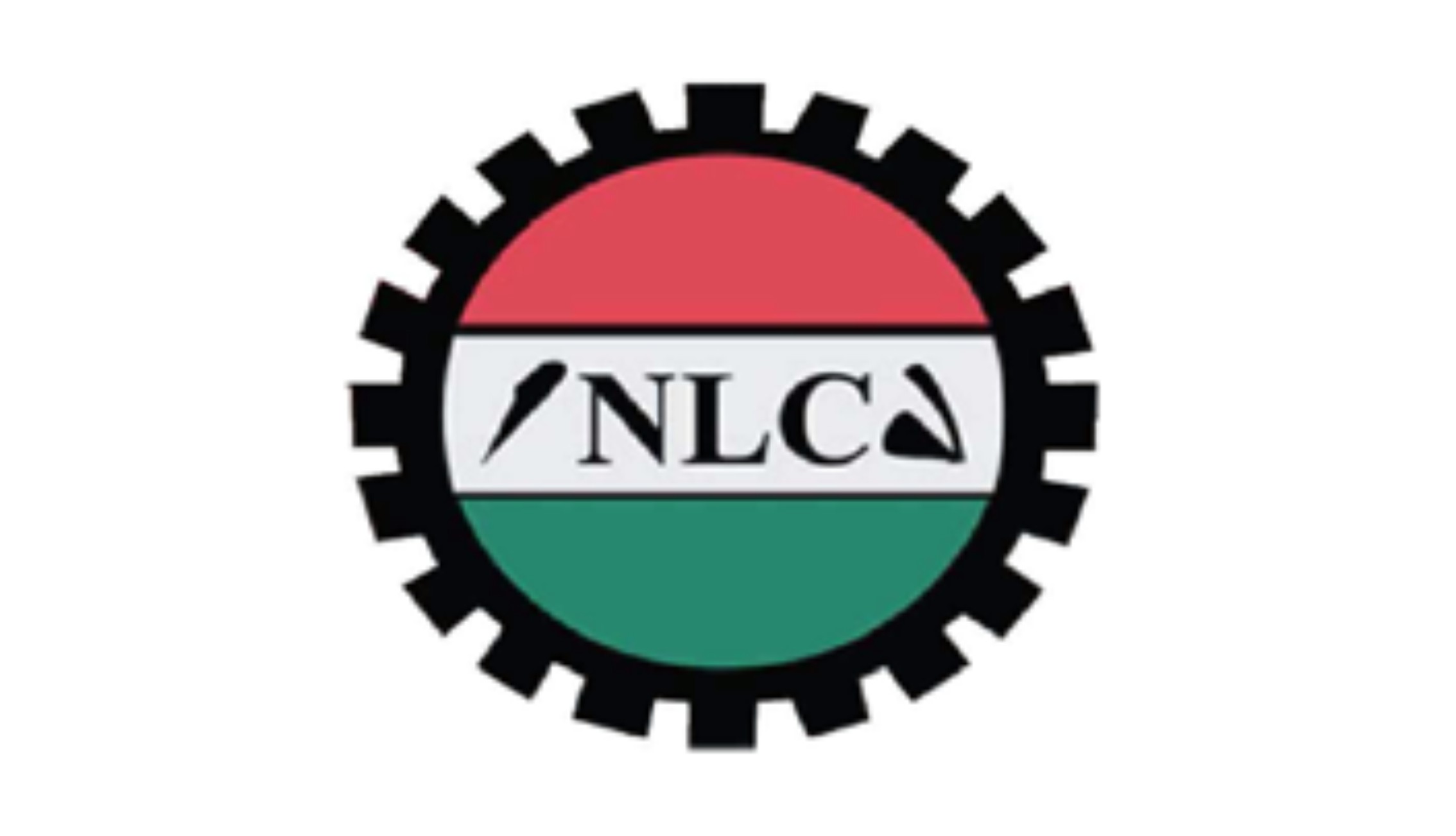
 Featured5 days ago
Featured5 days agoLabour Unions In Rivers Call For Improved Standard Living For Workers
-
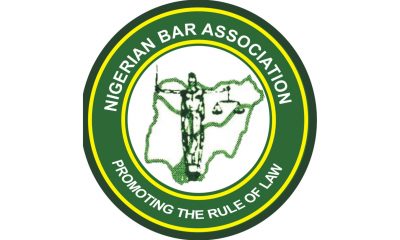
 News5 days ago
News5 days agoNBA President Sues For Workers’ Protection, Better Wage
-

 News5 days ago
News5 days agoAdeleke Approves N4bn Bond To Clear Pension Arrears
-

 News5 days ago
News5 days agoNDDC Seeks UN’s Support To Accelerate Niger Delta Development
-

 News5 days ago
News5 days ago2025 UTME: JAMB Disowns Site Requesting Payment From Candidates
-
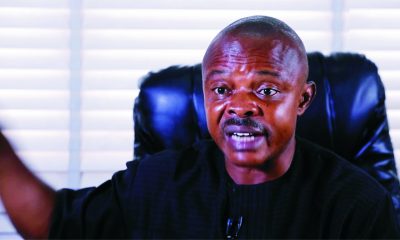
 News5 days ago
News5 days agoMay Day: Labour Seeks Inclusiveness In Policy-making
-

 Niger Delta5 days ago
Niger Delta5 days agoRivers Begins, Supplemental Polio Vaccination, Morrow
-

 Featured5 days ago
Featured5 days agoRSG Commits To Workers’ Welfare …. Calls For Sustained Govt, Labour Partnership

